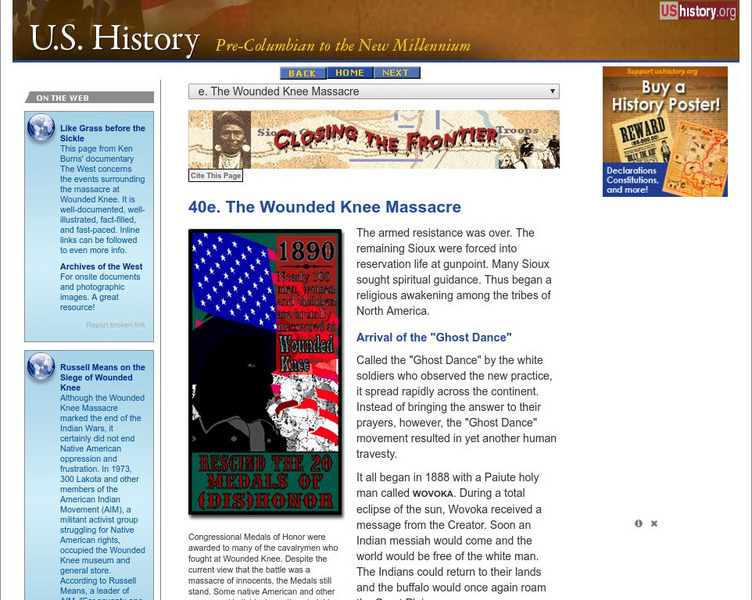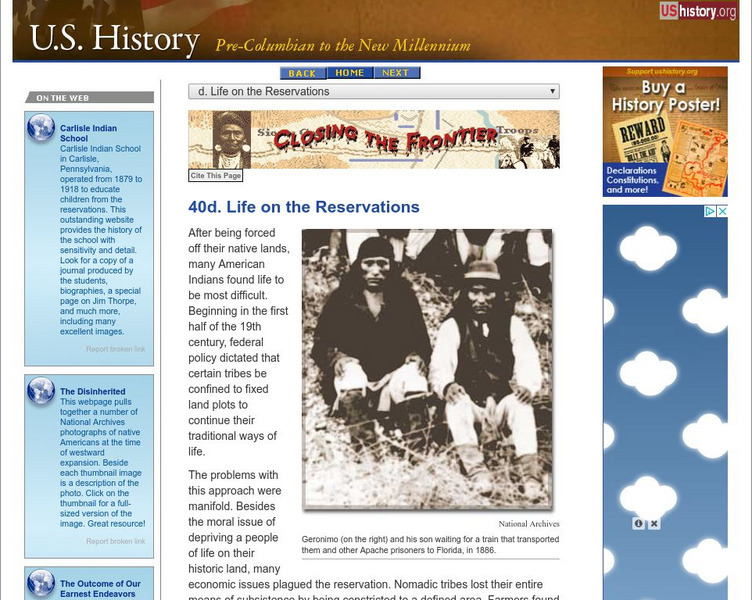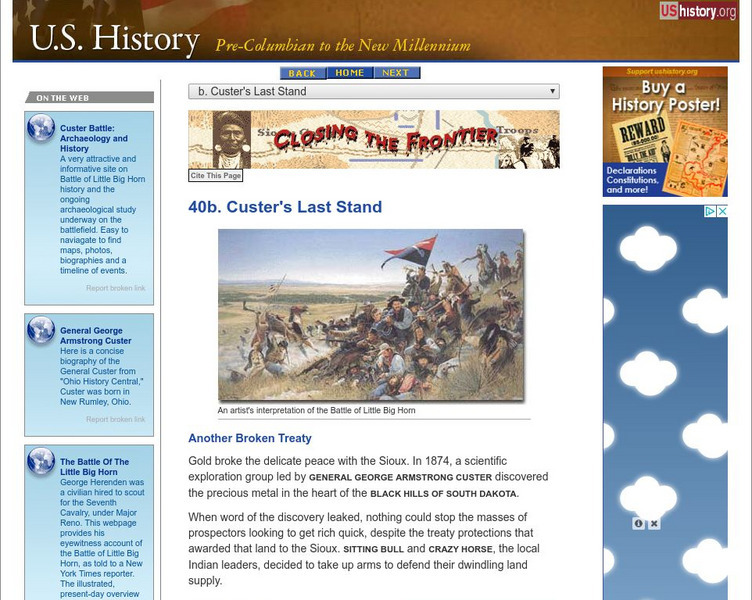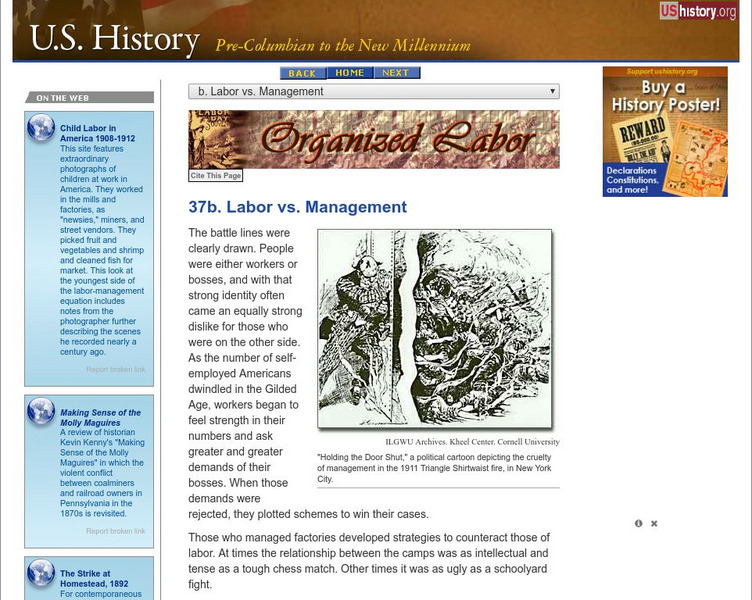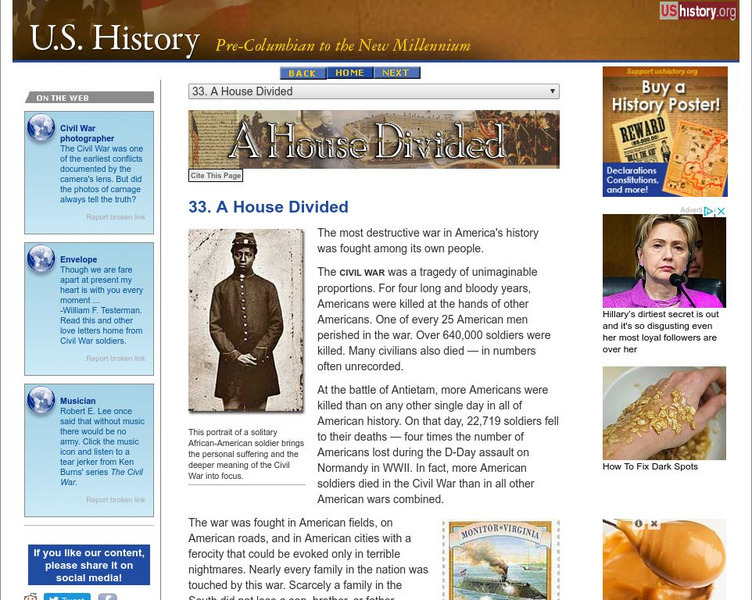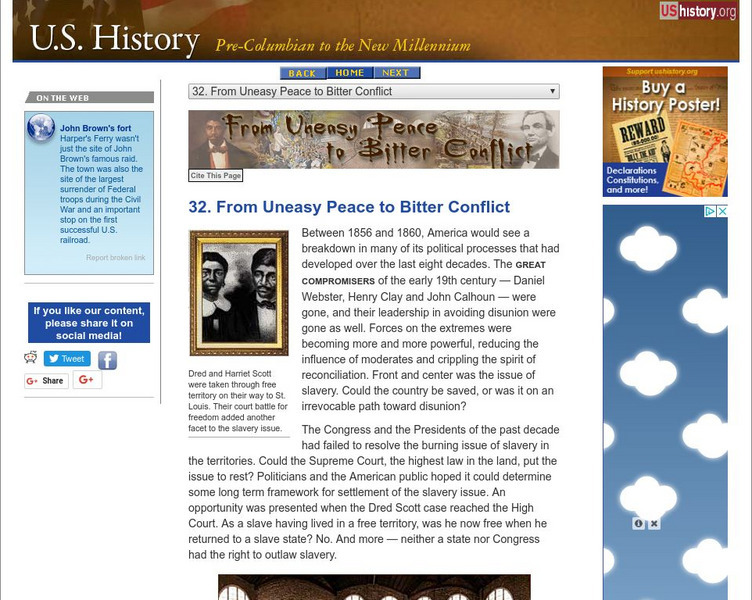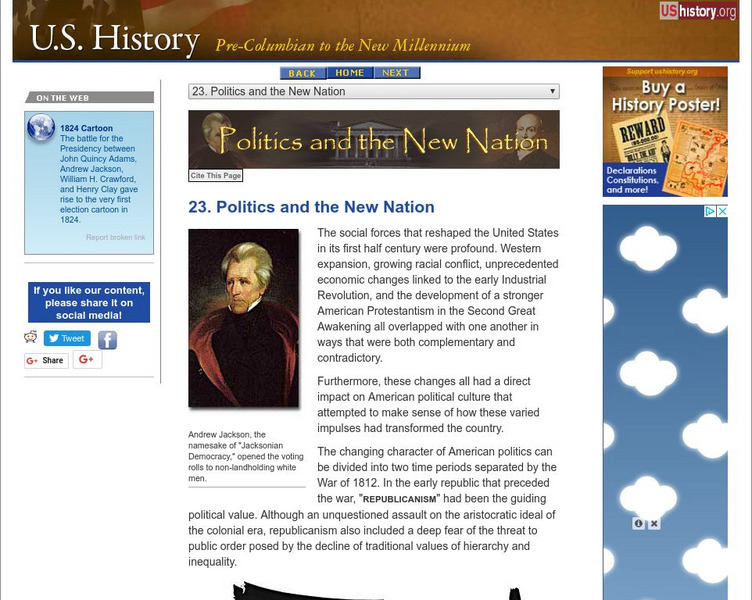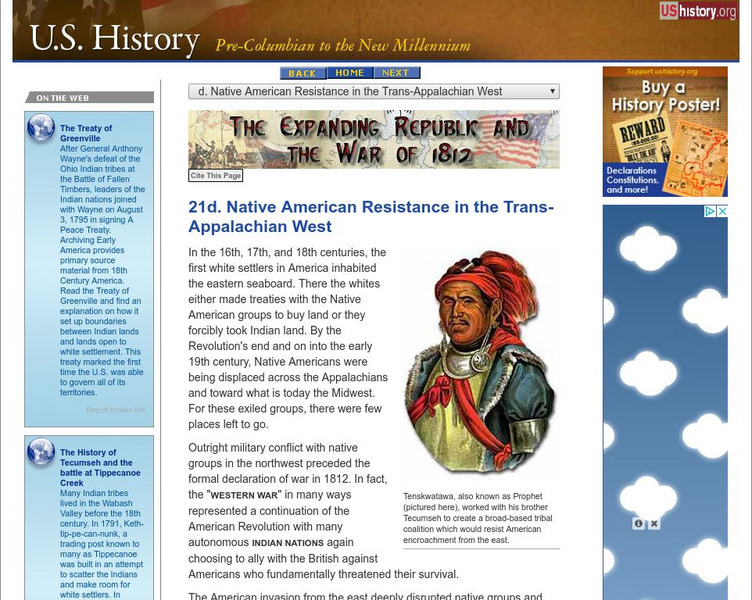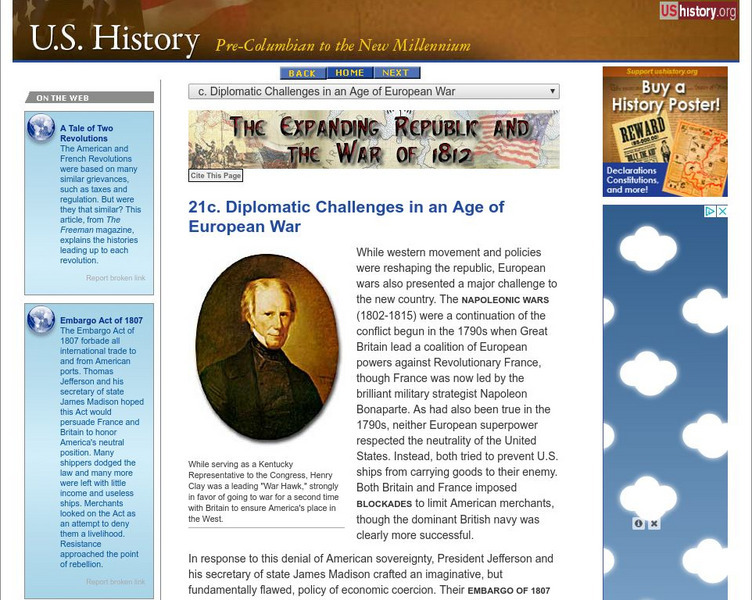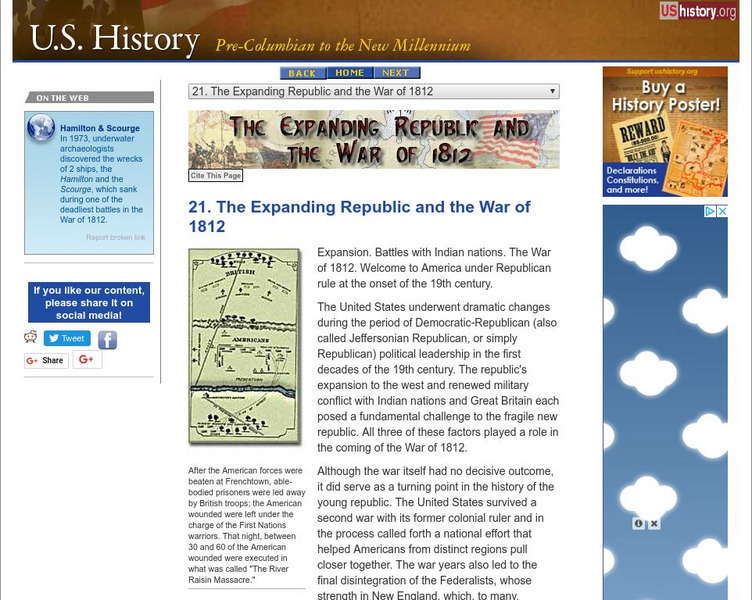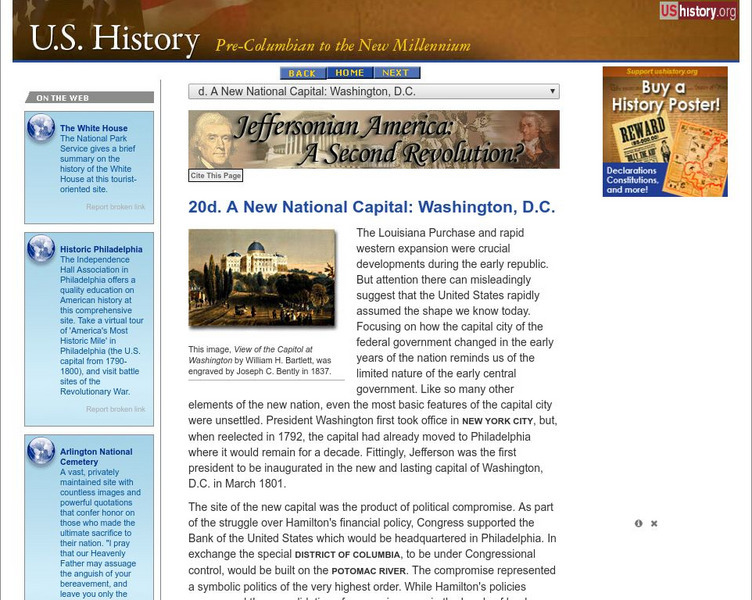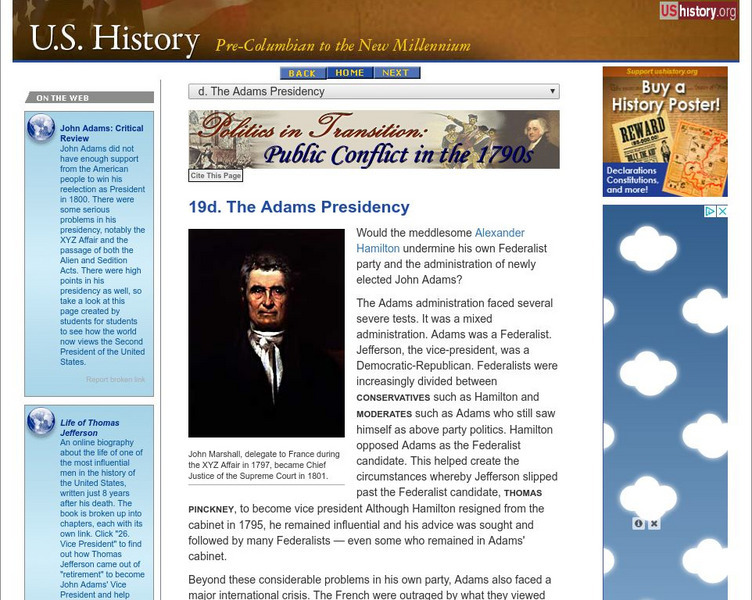Independence Hall Association
U.s. History: The Roosevelt Corollary and Latin America
See how the Roosevelt Corollary expanded on the Monroe Doctrine and allowed for intervention in Latin American affairs.
Independence Hall Association
U.s. History: Hawaiian Annexation
Read about the annexation of Hawaii and how it was an on-and-off-and-on policy. See the influence of the American planters in the governmental workings of the Hawaiian monarchy.
Independence Hall Association
U.s. History: Early Stirrings
American desire for overseas expansion began as early as the purchase of Alaska from Russia. See what other actions were taken in the latter part of the 19th century, and find out why this imperialist view was taking hold.
Independence Hall Association
U.s. History: The Wounded Knee Massacre
Read about the phenomenon of the Ghost Dance that was causing a religious reawakening with Native Americans in the 1880s. See how this caused the travesty at Wounded Knee Creek where the U.S. Army attacked peaceful Sioux who were trying...
Independence Hall Association
U.s. History: Life on the Reservations
Read about the probems caused by restricting Native Americans to reservations after their collective defeat by the end of the 19th century. See how the Dawes Act tried to address these problems, but only made things worse.
Independence Hall Association
U.s. History: Custer's Last Stand
Read a brief description of General George Custer and his troops engagement with the Sioux at the Little Big Horn River. See what happened to the Sioux, and find out what the general perception of the Indian Wars was to the American public.
Independence Hall Association
U.s. History: New England Colonies: Dissent in Massachusetts Bay
The Puritan clergy in Massachusetts Bay colony did not allow religious dissent. Read about the fate of colonists Anne Hutchinson and Roger Williams who believed in religious freedom.
Independence Hall Association
U.s. History: Victorian Values in a New Age
See the tension between Victorian morality and new ideas as America became urbanized. Read about the Comstock Law, and find out about the first woman to run for president,
Independence Hall Association
U.s. History: From the Countryside to the City
The growth of cities was rapid in the last half of the 19th century. Read about the good things and bad things that were a result of this urbanization.
Independence Hall Association
U.s. History: American Federation of Labor
Samuel Gompers, master organizer, had a vision of a national union that would have economic clout, but would steer clear of politics. Read about his organization of skilled workers in craft unions under the banner of the American...
Independence Hall Association
U.s. History: Labor vs. Management
As Big Business grew in the Gilded Age, so did conflict between the workers and management. Read about the techniques used by both groups to try to press their points and get the upper hand in negotiations.
Independence Hall Association
U.s. History: Organized Labor
Industrial workers, as industry emerged and grew in the last half of the 19th century, did not profit as the business tycoons did. Read about the very beginnings of attempts to organize as a force to demand higher wages, a shorter work...
Independence Hall Association
U.s. History: Of Generals and Soldiers
Many of the generals on both sides of the Civil War were friends and acquaintances because of their service in the Mexican War. Read about some of these generals and see on which side they fought and why.
Independence Hall Association
U.s. History: A House Divided
A very brief overview of the Civil War, the casualties, and the horrific social and economic effects across the nation. Included is a map that shows when each Southern state seceded from the Uniion.
Independence Hall Association
U.s. History: From Uneasy Peace to Bitter Conflict
A brief overview of what was in store for the United States after the controversial Dred Scott decision.
Independence Hall Association
U.s. History: Politics and the New Nation
A brief overview of how the United States would change during the Age of Jackson and Jacksonian democracy.
Independence Hall Association
U.s. History: The Second War for American Independence
The War of 1812 has been called the Second War of Independence. Find out about one of the causes of the war, and read about the possible plans for secession by the New England states, which opposed the war.
Independence Hall Association
U.s. History: Native Resistance in the Trans Appalachian West
This site gives a brief look at the Indian alliance built by Tecumseh to confront the U.S. military which wanted to protect the settlers moving west into Indian territory.
Independence Hall Association
U.s. History: Diplomatic Challenges in an Age of European War
Both the British and French challenged American sovereignty and neutrality on the high seas. Read about the solution favored by Thomas Jefferson, but despised by the American shippers. See why this a cause of the War of 1812, along with...
Independence Hall Association
U.s. History: Exploration: Lewis and Clark
A very brief overview of the Lewis and Clark expedition, focusing on the beginning and western terminus of the trip.
Independence Hall Association
U.s. History: The Expanding Republic and the War of 1812
A brief overview of the Jeffersonian Era up through the War of 1812.
Independence Hall Association
U.s. History: A New National Capital: Washington, d.c.
John Adams was the first president to reside in the President's House in the new capital Washington, D.C. Thomas Jefferson was the first president to be inaugurated there. Read about how this swampy area became the location of the...
Independence Hall Association
U.s. History: The Adams Presidency
John Adams faced opposition within his own administration. See who caused him problems at home, and read about the deteriorating relationship with France.
Independence Hall Association
U.s. History: Trans Atlantic Crisis: The French Revolution
A look at the French Revolution and how it was interpreted by members of the ruling members in the new United States. What occurred in France tempered the way politic opposites viewed each other in America.





